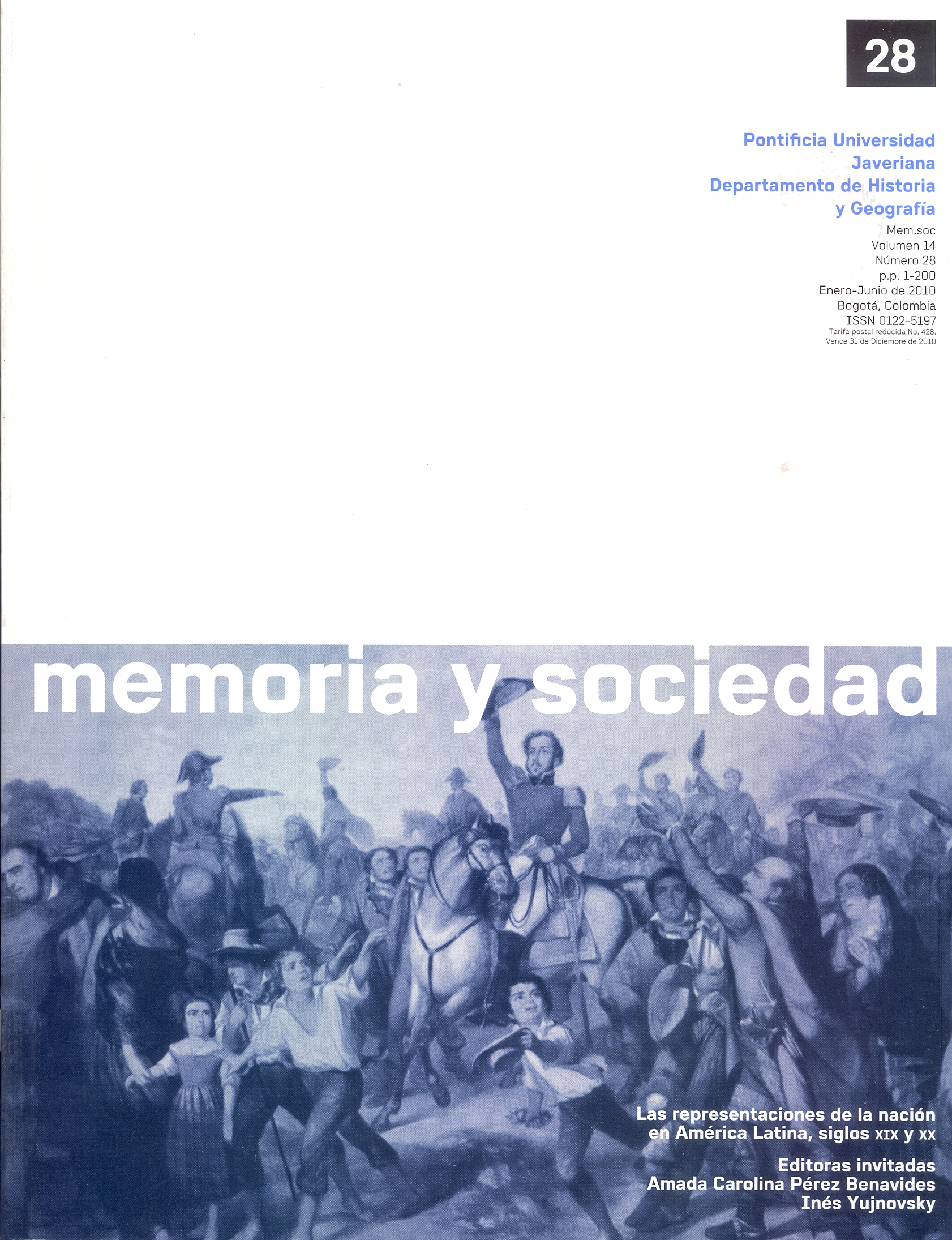Abstract
This article discusses the political and identity mobilization of history in the proccess of independence of Brazil, considering that the formation of the State and the emergence of the nation in the Brazil are two dimensions articulated in the context of crisis and overcome the Ancient Regime Portuguese in America. More specifically, we intend to discuss the discursive mobilization of the recent historical experience in the periodic press published in Brazil between 1821 and 1822. The text is guided by the hypothesis, inspired by the theoretical assertions of R. Koselleck, that as a project of independence is crystallized, the “colonial past” tended to lose its regulatory powers to the present, at the same time that there was an intense appreciation of the “recent past”. Seeks to demonstrate how this element, among other factors, legitimized and guided, in terms of discourse and identity, the process of independence of Brazil.The journal Memoria y Sociedad is registered under a Creative Commons Attribution 4.0 International Public License. Thus, this work may be reproduced, distributed, and publicly shared in digital format, as long as the names of the authors and Pontificia Universidad Javeriana are acknowledged. Others are allowed to quote, adapt, transform, auto-archive, republish, and create based on this material, for any purpose (even commercial ones), provided the authorship is duly acknowledged, a link to the original work is provided, and it is specified if changes have been made. Pontificia Universidad Javeriana does not hold the rights of published works and the authors are solely responsible for the contents of their works; they keep the moral, intellectual, privacy, and publicity rights.
Approving the intervention of the work (review, copy-editing, translation, layout) and the following outreach, are granted through an use license and not through an assignment of rights. This means the journal and Pontificia Universidad Javeriana cannot be held responsible for any ethical malpractice by the authors. As a consequence of the protection granted by the use license, the journal is not required to publish recantations or modify information already published, unless the errata stems from the editorial management process. Publishing contents in this journal does not generate royalties for contributors.

